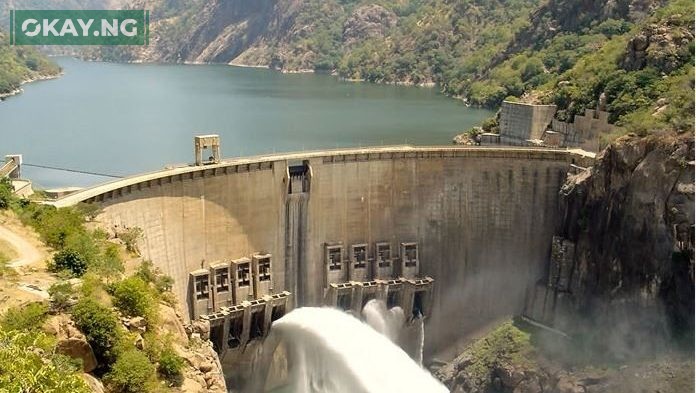The Nigeria Hydrological Services Agency (NIHSA) has issued a warning to Nigerians regarding the planned water release from Cameroon’s Lagdo Dam, which could impact river levels in the country, Okay.ng reports.
The announcement was made in a press statement signed by the Director General and Chief Executive Officer of the NIHSA, Umar Muhammed, on Tuesday.
According to the statement, Cameroon will begin controlled water releases from the Lagdo Dam starting today, September 17, 2023.
The initial water discharge is set at 100 cubic meters per second (100m³/s), equivalent to 8.64 million cubic meters per day, and will gradually increase to 1000m³/s over the next seven days, depending on the inflow from the Garoua River, which feeds the dam and is a key tributary of the Benue River.
“The Nigeria Hydrological Services Agency wishes to notify the general public that the authorities of the Lagdo Dam in Cameroon have communicated to the agency that they will initiate controlled water releases at a rate of 100m³/s starting today, 17 September 2023,” the statement read.
The agency reassured the public that the water releases will be carefully managed to avoid overwhelming the Benue River system and causing significant flooding downstream in Nigeria. The release of water is expected to cease once inflow into the dam decreases.
Despite the controlled water release, NIHSA emphasized that there is no immediate cause for alarm, as the current water levels along the Benue River are within cautionary limits.
“The agency unequivocally states that there is no need for alarm as major flooding downstream in Nigeria is not anticipated since the flow levels along the Benue River are still within cautionary limits,” the statement added.
However, the agency called for increased vigilance from states along the Benue River, which include Adamawa, Taraba, Benue, Nasarawa, Kogi, Edo, Delta, Anambra, Bayelsa, Cross River, and Rivers. The Federal, State, and Local Government Areas were also urged to implement preparedness measures to mitigate potential flooding impacts.
NIHSA assured the public that it will continue to monitor the flow conditions of the Benue River and other major inland rivers, providing regular updates on water levels to prevent potential flood disasters.













